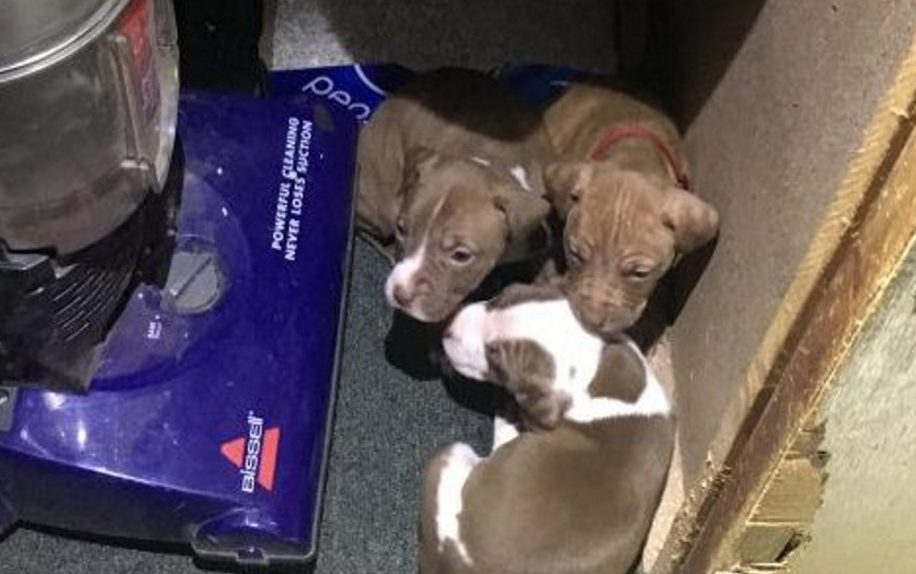It can take a lot of misery to produce a puppy.
That’s not what anyone wants to think about when they bring home a new pet, but the evidence is hard to ignore.
The latest comes from Skowhegan, where authorities who searched a home said they found 11 dogs kept in poor conditions, the place heavy with the smell of urine. The resident, a 32-year-old woman, was arrested after a months-long investigation by Skowhegan police and the state’s Animal Welfare Program.
First, the woman was arrested for selling dogs with fake vaccination records.
Later, a stray dog with severe tissue damage from a muzzle was traced back to the woman. Police say they obtained a search warrant after an undercover officer bought a puppy from her, and then raided the house, where they found sickly dogs with little to no access to food or water.
Three puppies were locked in a closet next to a cat litter box. Four others were in a bathtub with a towel soaked in urine. Their mother was in a dirty cage in a cold garage, police say, and was malnourished to the point that she needed significant care at the Humane Society of Somerset County.
Investigators believe that the woman was “pet flipping.” In a practice that animal advocates say is happening more often, people acquire pets at no or very little cost, either by stealing them, or by posing as a buyer to someone who has a litter of puppies for sale, or who for some reason has to give up their pets. The pet flipper then sells the animal, typically online, for a hefty profit.
If investigators had not come along, the adult dog may have stayed in that garage for as long as she could reproduce, delivering puppies that would have been sold to families unaware of the cruelty and indifference that made them possible.
Unfortunately, that same dynamic plays out with breeders across the country. With or without a license, some breeders produce puppies under deplorable conditions, then hide behind the anonymity of the internet, often using multiple names and phone numbers to hide the scope of their operation.
Even some of those with an official breeding license treat dogs in a way that would disgust new puppy owners, if they were ever allowed to see them.
Instead, the breeders set up shop in states with lax oversight, safe in the knowledge that the overmatched and impotent regulators from the U.S. Department of Agriculture will never come and check. They sell puppies online or through pet stores, at a safe remove from their harsh origin.
That’s why it’s up to the consumer to make sure these conditions aren’t tolerated.
First, there is always adoption, even for purebreds, through many reputable organizations.
If you must buy a puppy, avoid online ads. Ask to see where the puppies were born, and to meet their parents, if only to make sure you are getting what you paid for – no legitimate breeder would say no.
And think twice before visiting a pet store, which often get their dogs from large-scale puppy mills that only have to meet the USDA’s low standards.
For that reason, the Legislature passed a bill proposed in 2015 that would have banned pet stores from offering anything other than rescue dogs and cats. Unfortunately, Gov. LePage vetoed the legislation, and an override failed.
Portland, however, passed its own ban on the retail sale of cats and dogs last year, and the statewide measure deserves another shot.
In any case, cruel breeding will continue until buyers make it stop.
Send questions/comments to the editors.


